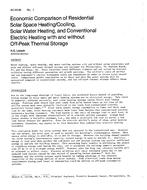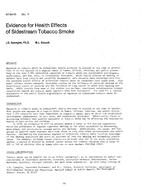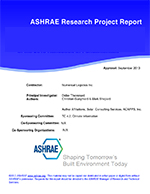The ability to fairly compare the energy efficiency of radiant heating and cooling systems to conventional forced-air systems has been a long-standing goal of the engineering design community. Such a comparison can only be made, however, through the fundamental analysis of the transient nature of the radiant system, the combined radiative and convective heat transfer from the radiant system and the resulting thermal environment produced by both space conditioning systems. A simulation tool that incorporates all of these characteristics has been developed. The model uses a derivative of conduction transfer functions that includes the effects of embedded sources or sinks to accurately account for the transient heat conduction in the radiant system. This model has been implemented into a well-known heat-balance-based energy analysis program and takes into account both the radiative and convective heat transfer at the surface of the radiant system. Due to the fact that the energy analysis program has three established thermal comfort models built into it, it is possible to compare energy consumption on the basis of resulting thermal comfort parameters rather than simply mean air temperature. Additionally, since interior surface temperatures are readily available, the model can evaluate radiant cooling systems for condensation potential and thus can be used to indicate when a hybriibes the implementation of the radiant heating and cooling model and presents an example comparing the energy consumption of a radiant system and a conventional forced-air system that provide equal levels of comfort. AUTHOR: Strand R K., Pedersen C O. CITATION
KEYWORDS: year 1997, Radiant heating, radiant cooling, computer programs, calculating, comparing, energy consumption, energy, efficiency, warm air heating, heat flow, thermal comfort, air temperature
Citation: Symposium, ASHRAE Trans. 1997, vol.103, part 1
Product Details
- Published:
- 1997
- File Size:
- 1 file , 1.1 MB
- Product Code(s):
- D-16495


